These specially trained canines, often called "Autism Assistance Dogs" or "ASD service dogs," have emerged as invaluable companions, offering more than just physical support. They play a pivotal role in enhancing the quality of life for children and adults with autism.
Beyond Companionship: A Deeper Understanding
By offering a calming presence, these dogs assist in navigating social environments, reducing anxiety, and providing a sense of security. The term "Therapy Dogs for Autism" aptly encapsulates their role, highlighting their therapeutic impact in managing the complexities associated with autism.
Navigating a World of Support
It's essential to understand how autism and dogs form a synergistic relationship that transcends traditional pet ownership. These service dogs are not just mobility service dogs; they are lifelines for many, facilitating independence, social interaction, and emotional stability.
This article explores the multifaceted roles of autism service dogs, shedding light on their significance and the profound difference they make in individuals with autism.
Understanding Autism and the Role of Service Dogs
Autism is a multifaceted neurobehavioral condition characterized by a spectrum of challenges. These include social interaction difficulties, developmental language issues, and communication skill deficits, often accompanied by rigid and repetitive behaviors.
The spectrum is broad, and the experiences of those with autism are unique and varied. This diversity necessitates tailored support approaches, where autism service dogs can play a transformative role.
Autism Service Dogs: More Than Just Companions
Autism service dogs are specifically trained to assist individuals with autism. These dogs are not merely pets; they are skilled companions trained to address the unique needs of their handlers.
Their training equips them to handle situations that might be overwhelming for neurodivergent individuals, such as navigating crowded spaces, interrupting repetitive behaviors, or providing a calming presence during stressful situations.
The Therapeutic Impact of Dogs on Autism
Unlike general therapy dogs, autism service dogs are assigned to individuals for constant support, forming a deep and personal bond. This relationship aids in mitigating the effects of sensory overload, a common challenge for individuals with autism.
The dogs' presence can also foster social interaction and encourage communication, serving as a bridge to the outside world for many.
Mobility and Beyond: The Varied Roles of Autism Service Dogs
While some autism service dogs are trained as mobility service dogs, their roles extend beyond physical assistance. They are adept at recognizing and responding to emotional cues, helping to manage anxiety and meltdowns.These dogs are also trained in safety tasks, like preventing their handler from wandering off. Their versatility in addressing both emotional and physical needs makes them an indispensable part of life for many individuals with autism.
Types of ASD Service Dogs
The world of autism support dogs is diverse, with each type trained to cater to specific aspects of autism. Understanding these variations is crucial for selecting a dog that best aligns with an individual's needs.Mobility service dogs are trained to help people with physical challenges accompanying autism. These dogs are adept at helping with balance, retrieving dropped items, and even navigating public spaces. Their role is vital in enhancing the physical independence of their handlers.
Some ASD service dogs are trained specifically to assist with sensory processing challenges, a common aspect of autism. These dogs can help manage sensory overload, provide deep pressure therapy, and create a calming presence during overwhelming situations. Their training enables them to respond to signs of distress and offer immediate comfort.
These dogs are trained to help their handlers with social interactions and communication. As social facilitators, they can encourage neurodiverse individuals to engage more with their environment, helping them overcome social barriers. Their presence can make social situations less daunting and more approachable.
Behavioral interruption dogs are trained to recognize and disrupt repetitive or harmful behaviors, a common trait in some neurodivergent individuals. These dogs can redirect their handler's focus through gentle intervention, breaking repetitive behavior cycles and promoting more adaptive behaviors.
In addition to these categories, some autism service dogs are trained for tasks based on their handler's unique requirements. This bespoke training can range from reminding handlers to take medication to provide a physical barrier in crowded places.
Emergency response dogs are trained to assist in situations that may pose a risk to neurodivergent individuals, such as wandering or getting lost. These dogs can track their handler if they wander off and are trained to alert caregivers in an emergency. This ability is crucial for ensuring the safety of individuals with autism who may find themselves in hazardous situations.
For individuals with autism who also experience seizures, seizure-alert dogs can be lifesaving. These dogs are trained to detect the onset of a seizure and provide an alert, allowing for timely intervention or assistance. Their presence offers a sense of security, particularly for parents of children with autism who are prone to seizures.
In cases where autism is accompanied by non-verbal communication or limited mobility, guide dogs can provide invaluable assistance. They help navigate, offer physical support, and can be trained to understand and respond to non-verbal cues, ensuring their handler's needs are met without verbal communication.
Some individuals may require the support of a dual-service dog trained to assist with more than one specific need. For instance, a dog might be trained as a mobility service dog and a sensory processing support dog. This dual capability is particularly beneficial for those with multiple aspects of autism that need to be addressed.
Finally, there are custom-trained service dogs tailored to the unique needs of their handler. These dogs undergo specialized training based on the specific requirements and lifestyle of the neurodiverse person they will be assisting. Custom training ensures the dog can provide the most effective support in various situations.
Autism Service Dogs for Children
Selecting an appropriate dog breed is crucial in ensuring the autism service dog is well-suited for a child.
Different breeds offer varying temperaments and qualities, making some more suitable than others for the delicate and demanding role of supporting a child with autism.
Dog Breeds Known for Their Temperament and Trainability
When selecting a breed for an autism service dog for children, key traits such as a calm demeanor, patience, and a high level of trainability are prioritized. These characteristics ensure that the dog can effectively and safely interact with a child with autism.Like Labradors, Golden Retrievers are known for their gentle demeanor and strong desire to please. Their intuitive nature makes them adept at sensing and responding to emotional changes in a child.
German Shepherds are valued for their intelligence and loyalty. With proper training, they can be exceptional autism service dogs, especially for children needing a sense of security and structured companionship.
Standard Poodles are known for their intelligence and hypoallergenic coats, making them suitable for children with allergies. They are also typically very gentle and can be easily trained to perform various tasks.
Collies are recognized for their gentle and predictable nature. They are often used as service dogs due to their ability to form strong bonds with children and their responsiveness to training.
Autism Service Dogs for Adults
Preferred Dog Breeds for Adult Assistance
When selecting a breed for a neurodiverse adult, it's essential to focus on dog breeds known for their adaptability, emotional intelligence, and ability to be trained for tasks relevant to adult life.These breeds should be capable of navigating various social and professional environments with ease.
Labrador Retrievers remain a top choice for adults due to their calm demeanor, intelligence, and adaptability. They are particularly effective in environments that require a gentle yet supportive presence.
Golden Retrievers are favored for their empathetic nature and ability to provide emotional support. They excel in helping adults navigate social and professional settings, offering a calming influence in potentially stressful situations.
German Shepherds are an excellent option for adults who require a dog with a protective instinct and high intelligence. They are well-suited for adults needing mobility assistance or a vigilant companion.
Boxers are known for their loyalty and energetic nature. They can be particularly beneficial for adults looking for a service dog that is both alert and engaging, helping them maintain an active lifestyle.
Border Collies, with their high intelligence and keen responsiveness, are excellent for adults who need assistance with complex tasks. They are well-suited for situations that require quick thinking and adaptability.
Choosing the Right Autism Service Dog
Tailoring to Specific Challenges: Assessing Individual Needs
The first step in selecting an autism service dog involves thoroughly assessing the individual's needs. This process includes understanding their daily routines, their challenges related to autism, and their preferences.
This assessment helps identify the type of service dog that would be most beneficial, whether a dog specialized in sensory support, social facilitation, or mobility assistance.
Beyond Basic Assistance: Understanding the Dog's Role
Finding the Perfect Companion: The Matching Process
Involving the Support System: Considerations for Families and Caregivers
Planning for Long-Term Commitment: Financial and Logistical Considerations
Ensuring a Smooth Transition: Training and Preparation
Legal Rights and Responsibilities
Legal Rights of Autism Service Dog Handlers
This access includes places like restaurants, stores, and public transportation. Handlers should know these rights to advocate for themselves and their service dogs in various settings.
Responsibilities of Service Dog Handlers
Handlers are also responsible for the care and maintenance of the dog, including its health and hygiene.
Housing Rights and Considerations
Employment and Service Dogs
Traveling with a Service Dog
When traveling, handlers of autism service dogs have specific rights concerning air travel and accommodations. Familiarity with airline policies and the rights under the Air Carrier Access Act can make the journey smoother for both the handler and the dog.
Autism service dogs are not just companions; they are vital partners in navigating the challenges of autism. Their unique ability to provide emotional support, enhance social interactions, and aid in daily tasks significantly improves the lives of individuals with autism.
The Transformative Role of Autism Service Dogs
Careful selection and training of these dogs ensure a perfect match to the individual's needs, whether for a child or an adult, profoundly impacting their independence and well-being.
This understanding of the transformative role of autism service dogs emphasizes their importance in the autism community. As we continue to recognize and value these extraordinary animals, it's clear they are more than aids; they are catalysts for positive change, opening doors to new possibilities and fostering a better quality of life for those with autism.







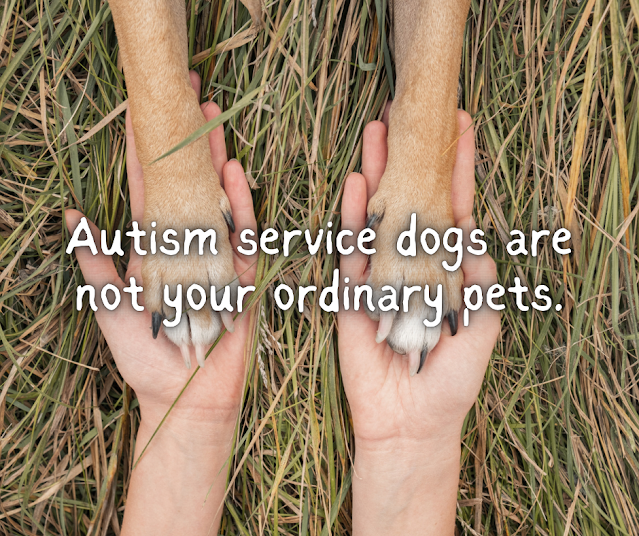





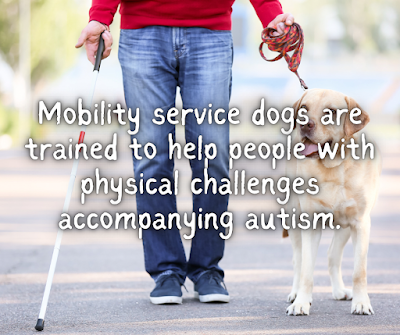
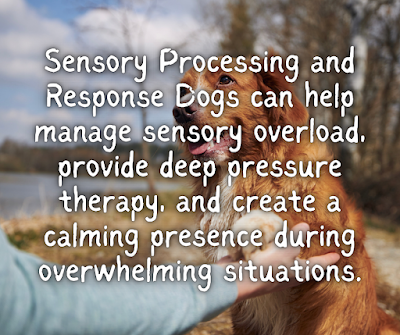
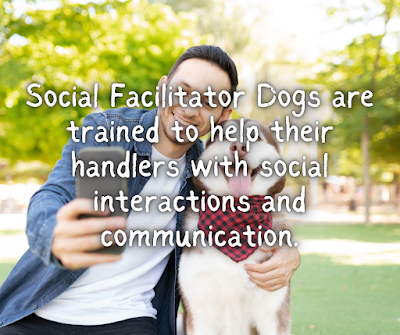


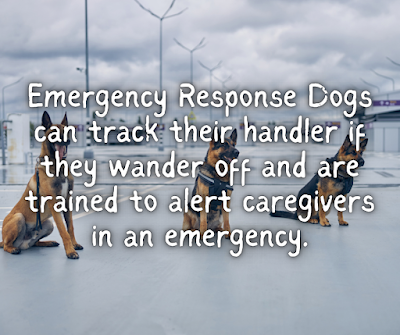



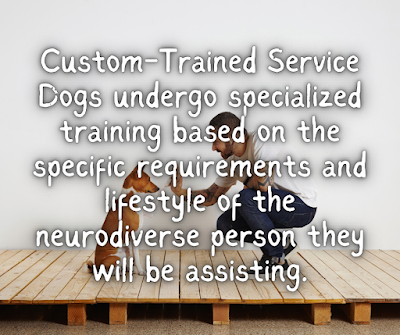


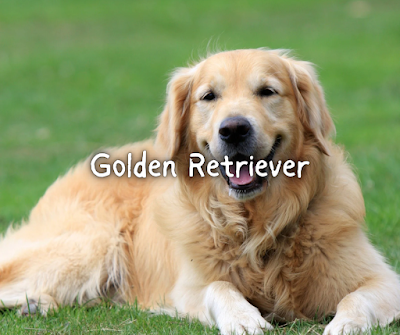
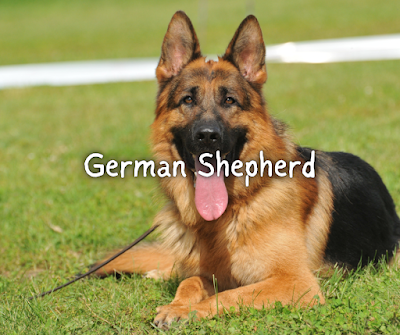

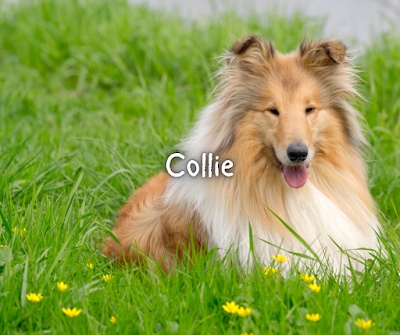

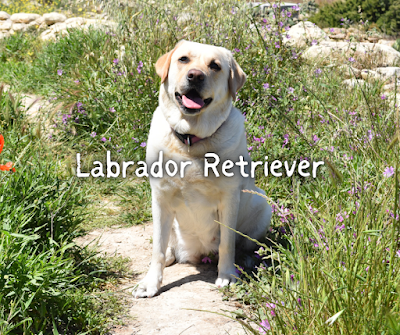



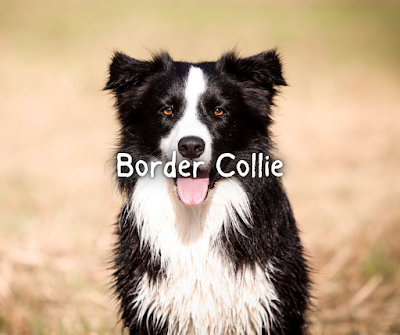
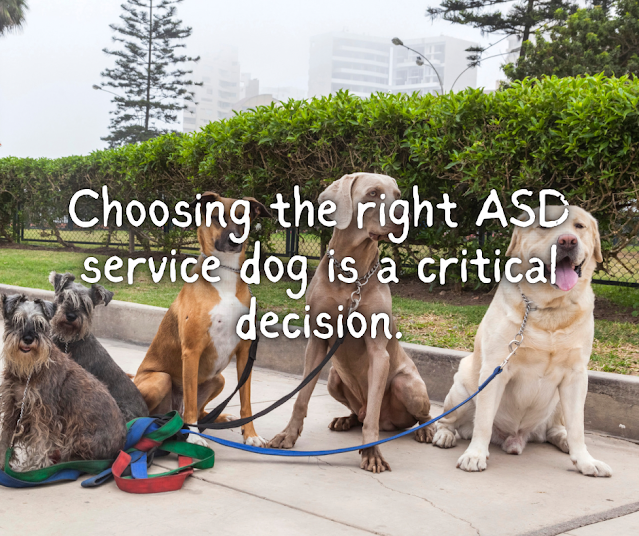










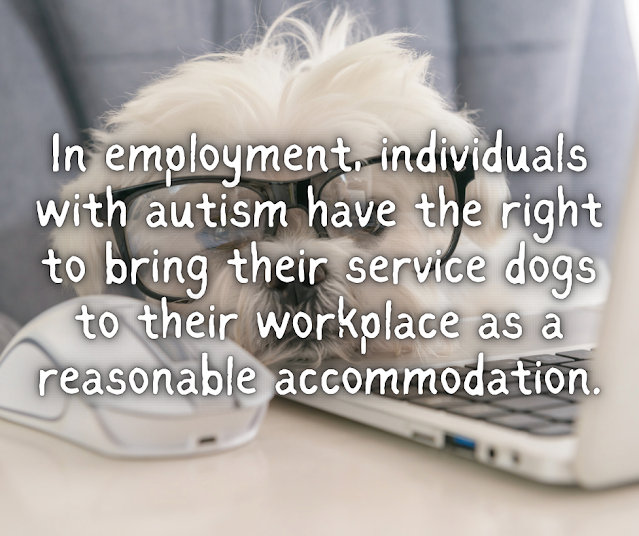
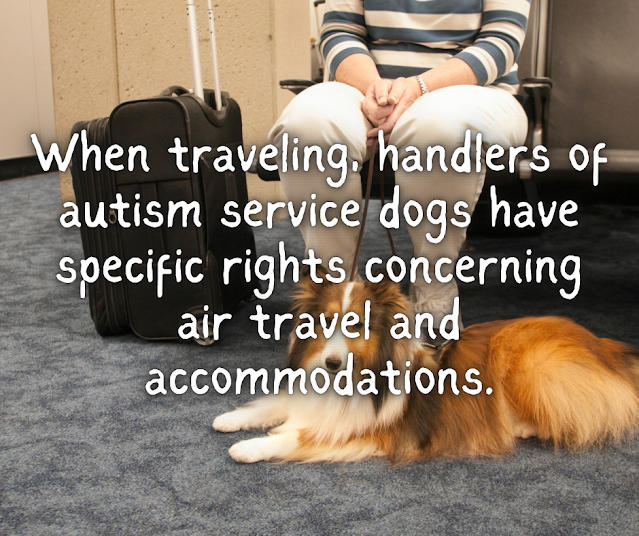








0 comments:
Post a Comment